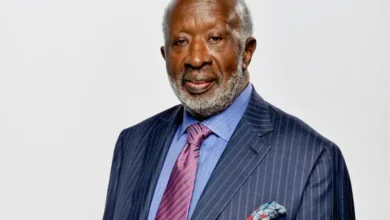Music Driving Us to School the Stars

Walt Whitman’s profound concept of the “barbaric yawp” reverberates as an elemental call, urging humanity to embrace the unadulterated and raw essence of existence itself. This resonating idea has traversed the global landscape, encapsulating a deep yearning for unrestrained self-expression and a boundless sense of liberation. Whitman’s poetry, characterized by its unfettered free verse and celebratory exaltation of life, stands as a lasting testament to his unshakable belief in the untamed spirit that resides within every individual.
This clarion call to embrace the untamed facets of the human experience finds a remarkable echo in the realm of music—a universal language that defies borders and resonates directly with the core of our being. Music possesses an unparalleled ability to stir emotions, ignite intellectual contemplation, and foster connections that transcend cultural and temporal divisions. From the primal beats of tribal drums reverberating through primeval forests to the intricately crafted digital symphonies now serenading our eardrums, music has evolved into an ever-evolving, transformative force.
The phenomenon of music serves as a mirror, reflecting the rhythmic cadence inherent in life itself. Analogous to how the heartbeat constitutes the rhythmic pulse of our physical bodies, music reflects and amplifies the rhythm that underscores existence. It captures the cresting highs and cavernous lows, the exultant joys and profound sorrows, the tumultuous chaos and serene tranquility of the journey called life. Throughout the annals of history, musical rhythms have often mirrored societal rhythms, echoing the shifting socio-political and cultural landscapes of diverse eras. It is within these rhythmic echoes that we discover fragments of our shared experiences, emotions, and aspirations.
The metaphorical journey of the “Zio Trip” encapsulates the transformative potency of music, guiding listeners through a cosmic expedition of sound and emotion. This metaphor encapsulates the notion that music is unconfined by temporal, cultural, or linguistic barriers. It offers both creators and listeners the chance to embark on a voyage of self-discovery, seeking harmonies, melodies, and rhythms that resonate profoundly with their souls. Analogous to intrepid explorers venturing into uncharted territories to broaden their horizons, music beckons us to explore the expansive landscapes of human emotion and imagination.
Music throughout history has emerged as an agent of innovation and rebellion. It has shattered conventions, challenged societal norms, and sparked profound social transformations. Consider the revolutionary compositions of Ludwig van Beethoven, whose symphonies broke free from traditional musical constraints and heralded the advent of the Romantic era. The resounding “Ode to Joy” from his Ninth Symphony remains a testament to the euphoria that accompanies the quest for celestial aspirations, a jubilant celebration of human unity and the zenith of creative expression. This musical masterpiece transcends geographical boundaries, delving into the intricate strata of human sentiment and guiding us toward a deeper comprehension of both ourselves and the cosmos.
The metaphor of the “Zio Trip” further reveals the symbiotic relationship between art and education. Music becomes an unwavering companion in the journey of learning, offering solace, intellectual stimulation, and profound inspiration. Across classrooms spanning the globe, educators harness the potency of music to facilitate learning, whether it involves using catchy tunes to convey elementary concepts or introducing intricate compositions that nurture critical thinking. The integration of music into education augments cognitive capabilities while fostering creativity, empathy, and emotional intelligence.
The influence of music education on sculpting the architects of society cannot be overstated. Within the confines of the school orchestra, each instrument and musician contributes to a collective harmony that mirrors the symphony of existence. Every student learns not only to master their chosen instrument but also to listen, respond, and collaborate—qualities that prove invaluable on the journey toward the cosmos, where unity and teamwork reign supreme.
The metaphor of the “Zio Trip” stretches beyond Earth’s boundaries, encapsulating humanity’s yearning to transcend terrestrial limitations. The launch of the Voyager spacecraft, bearing the Golden Record, encapsulates our shared human heritage through an anthology of music, sounds, and salutations. This interstellar anthology stands as a testament to the timeless role of music in shaping our identity and forging communication across the expanse of space and time. As our odyssey into the cosmos continues, our musical journey resonates far beyond the confines of our planetary abode.
In the contemporary era, technology has revolutionized the domains of musical exploration and connection. The digital age has democratized the creation and dissemination of music, enabling individuals from diverse backgrounds to embark on their own personal “Zio Trips.” Equipped with software synthesizers, digital audio workstations, and online platforms, aspiring musicians can now compose, produce, and share their creations with a global audience. This democratization has dismantled barriers that once restricted musical expression to an exclusive few, resulting in a rich tapestry of voices contributing to the symphony of human creativity.
Amid the ongoing digital revolution, the essence of the “Zio Trip” remains unaltered: the relentless pursuit of excellence, the audacious exploration of uncharted territories, and the elevation of the human spirit. In a world awash with information, the music assumes the role of a guiding star, leading us to moments of introspection, connection, and unadulterated elation. It resonates deep within us, serving as a poignant reminder of our collective humanity, our aspirations, and our limitless capacity for beauty and transcendence.
The metaphor of the “Zio Trip” defies easy categorization by genre, culture, or epoch. It encompasses the entirety of the human musical odyssey, spanning from ancient chants to avant-garde symphonies. It exhorts us to listen, to learn, and to evolve as we collectively journey toward the stars, driven by the inexhaustible power of music.
Walt Whitman’s conceptualization of the “Zio Trip” encapsulates a metaphorical odyssey fueled by the boundless energy of music, propelling us toward the astral realms of artistic brilliance and personal fulfillment. This epic voyage encapsulates the enduring essence of human creativity, exploration, and the relentless pursuit of the enigmatic and uncharted. Music persists in echoing within the recesses of our hearts and minds, surmounting linguistic, cultural, and temporal barriers to unite us and illuminate our shared voyage through existence. With every note, every melody, and every harmonious collaboration, we wholeheartedly embrace the call of the “Zio Trip,” drawing ever nearer to the celestial bodies that kindle our imagination and rekindle our spirits.
